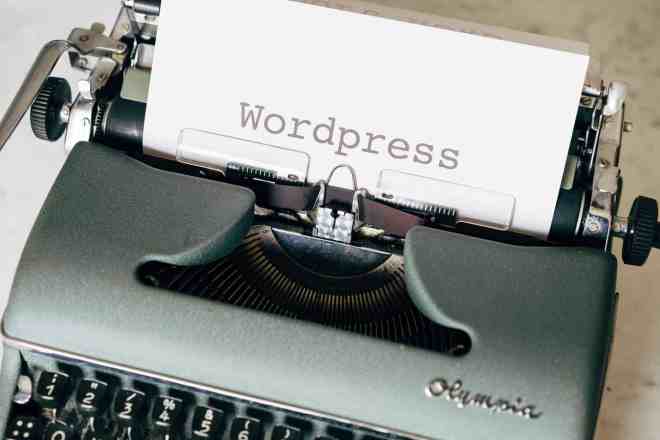PHP is a powerful server-side scripting language. The code stands as a cornerstone in the world of web development. Its versatility and efficiency have made it popular. To leverage PHP’s potential, a sturdy framework is critical.
The best frameworks provide needed structure. They simplify the development process. They allow for faster, more secure coding. Consider the best PHP frameworks available today. We’ll help you identify a framework that suits your specific development needs. What you’ll gain will be valuable to your future coding endeavors.
What Is a PHP Framework? Why Should You Use One?
A PHP framework is a platform for developing web applications using the PHP language. Frameworks give developers a basic working structure. They simplify complex coding tasks. They promote rapid application development (RAD). These frameworks allow users to better understand the principles of various architectural patterns. The software separates the application logic from the user interface. The code is easier to manage and maintain.
One key benefit of using a PHP framework is its efficiency. Frameworks, such as Laravel, come with an elegant syntax that makes tasks easier. You’ll develop routing sessions, caching or security features. The structure allows developers to focus more on creating the application. You’ll avoid routine coding tasks.
PHP frameworks also enhance security. They have built-in functions and libraries. Out-of-the-box solutions help with input and data sanitization. The software protects applications against threats. Avoid SQL injections and Cross-Site Scripting (XSS) attacks.
PHP frameworks often enforce proven development practices. They lead to better code organization and allow for scalability. For example, Symfony allows developers to reuse software components. Tapping into a library saves time. Using pre-written code leads to more reliable applications.
Key Considerations When Choosing a PHP Framework
Choosing the right PHP framework is critical to your project’s success. Choosing the right option hinges on several factors.
- Project requirements: The size and complexity of your project should dictate your choice. Consider any special needs, too. Laravel is excellent for large, complex projects due to its extensive features. Meanwhile, Codelgniter may suit smaller projects because of its simplicity.
- The learning curve: The ease of understanding and usage is another crucial consideration. Some frameworks, like Laravel, have a steep learning curve but provide many features. Others are easier to grasp but may offer fewer functionalities. Consider your team’s capabilities when deciding.
- Community support and documentation: A well-documented framework offers quick help. An active community provides extra resources. Access to detailed fixes is crucial for resolving any issues that arise.
- Performance and scalability: Many frameworks offer speed and efficiency. Others scale with the growing needs of your application.
- Integration and compatibility: Consider the framework’s compatibility with other technologies you use. Your selected framework should integrate with different databases. Ensure it works with libraries or other tech stacks to ensure smooth development.
Many PHP frameworks exist in today’s tech landscape. Some are better known than others. The ones detailed below are the top choices developers gravitate toward. Top selections feature robust features and reliability.
1. Laravel
Laravel is a modern, open-source PHP framework that uses the MVC architectural pattern. Its key features include:
- An ORM (Object Relational Mapping) for database operations
- A routing system
- Powerful query builder
- Out-of-the-box support for user authentication.
Laravel shines due to its elegant syntax, extensive features and scalability. It is suitable for complex projects. Yet, it comes with a steep learning curve and can be overkill for smaller projects.
Laravel is ideal for developing large-scale enterprise applications. Creators also use it for e-commerce platforms and content management systems. The software integrates with other popular technologies. Robust features make it a prime choice for developers building comprehensive web applications.
2. Symfony
Symfony is a high-performance PHP framework utilized for large-scale enterprise projects. Some of its standout features include:
- A reusable set of standalone PHP components
- A flexible routing system
- Extensive database support.
On the upside, Symfony offers high customizability, scalability and strong community support. Its standalone components can be useful in any PHP project, increasing its flexibility. But, Symfony has a considerable learning curve. The framework may not be the best fit for small, simple projects because of its complexity.
Symfony works for complex web applications with a high level of customization. The software scales up as your business does. The program works well for e-commerce sites, social networking platforms or business applications. The framework’s focus on modularity makes it a go-to choice for professional developers. Contributors also focus on code quality.
3. CodeIgniter
CodeIgniter is a lightweight, open-source PHP framework recognized for its simplicity and performance. Its key features include:
- A small footprint
- Excellent documentation
- Built-in security tools
- A straightforward installation process
The advantages of CodeIgniter include its simplicity and speed. It has a smaller learning curve compared to many other frameworks. It also has fewer server requirements. It lacks some of the modern features found in more robust frameworks like Laravel or Symfony.
CodeIgniter is best suited for small to medium-sized web applications. If you need rapid development, this is the perfect choice. The software offers a straightforward framework that gets the job done. One example is web applications that don’t demand a high level of scalability. Use it when you don’t need complex functionalities.
4. Yii
Yii, standing for “Yes, it is,” is an object-oriented, open-source PHP framework. It offers:
- Easy installation
- A powerful ORM layer
- Robust caching support
- Extensive security measures.
The benefits of using Yii include its high performance and efficiency. It is one of the fastest PHP frameworks. It’s also extensible and provides comprehensive security features. It’s not as beginner-friendly as some other frameworks. You’ll need a good understanding of object-oriented programming.
Yii is best for developing applications that need high-performance and complex workflows. Use it to build forums, portals, content management systems or e-commerce websites. If you’re dealing with extensive data manipulation, Yii could be the right choice. The software offers a secure, efficient solution.
5. CakePHP
CakePHP is an open-source PHP framework that emphasizes convention over configuration. You’ll appreciate the active record patterns, making the coding process more intuitive. It provides:
- Built-in tools for input validation
- CSRF (Cross-Site Request Forgery) protection
- Form tampering protection
- SQL injection prevention
- XSS prevention
CakePHP features an easy learning curve, rapid development capabilities and built-in security tools. It also offers excellent documentation. It may not be as efficient in handling large applications with complex requirements.
CakePHP is ideal for rapid application development. It works particularly well for commercial web applications. Developers also use CakePHP for small business websites and software prototypes. It features a comprehensive set of libraries and tools. The program is an excellent choice for developers looking for speed and simplicity.
6. FuelPHP
Another open-source software many developers use is FuelPHP. Fuel PHP opened in October 2010. Contributors included Frank de Jonge, Philip Sturgeon and Dan Horrigan. Sturgeon and HOrriban also worked on CodeIgniter framework. Advantages include:
- URL routing system
- Profiling and debugging tools
- Database migration like the Ruby on Rails framework
- Operations available through command line
FuelPHP offers many pros. Full HMVC implementation is part of its architecture. Strong security features stop hackers in their tracks.
FuelPHP framework is ideal for those getting started in coding. The system is easy to learn. You can make changes and not write new code. FuelPHP has a modular structure. Modules help with the learning curve you’ll experience from any new framework. The hierarchy of properties makes the software easier to pick up .
7. Phalcon
As with most popular PHP frameworks, Phalcon is an open-source program. The creators released the program in November of 2012, offering it under the BSD license. The full-stack PHP framework arrives as a C-extension. Users don’t need to know how to code in C to use the software. Some of the features include:
- Load Zephir/C extensions with the PHP framework to the web serve start process and the package is ready to go
- ORM allows you to change database records as classes and objects
- Work with MySQL, SQLite and PostgreSQL to start
- Set hook points to create customized events
- Active community for hacks and bug fixes
Find the right PHP framework to suit your needs. Consider how involved the development community for the software is. You want people who answer questions and share tips daily. To get the most out of your framework, you need help from contributors to the open-source software.
Choosing the Right PHP Framework for Your Development Project
Choosing the right PHP framework is a decision impacting your project’s success. Each framework has its unique strengths and potential drawbacks. It’s essential to match your project requirements with the features of these frameworks. Be open to exploring and experimenting with these tools. The journey to discovering the perfect fit can be a great learning curve in itself. Along the way, you’ll enhance your skills and expand your knowledge.
About The Author
Eleanor Hecks is the Editor-in-Chief of Designerly Magazine, an online publication dedicated to providing in-depth content from the design and marketing industries. When she's not designing or writing code, you can find her re-reading the Harry Potter series, burning calories at a local Zumba class, or hanging out with her dogs, Bear and Lucy.


